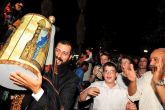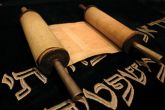
 ChameleonsEye/shutterstock.com Thousands of years ago, King David poured out his passion for the Word of God in a skillful song. “Oh how I love Your Torah!” he sang, “It is my meditation all the day” (Ps. 119:97).
ChameleonsEye/shutterstock.com Thousands of years ago, King David poured out his passion for the Word of God in a skillful song. “Oh how I love Your Torah!” he sang, “It is my meditation all the day” (Ps. 119:97).
Today, some three millennia later, the same heart of love still beats within the descendants of Israel’s famous shepherd king. God did, after all, invite the Jewish people to weave His Torah (Gen.–Deut.) into the very fabric of their existence. His words were to be tucked safely into their hearts as a treasure, to be mulled over as day flowed into night, the delights thereof shared with their children and their children’s children (Deut. 6:6–9).
Israel clearly took these instructions to heart. Even now, generations later, the joy of the Torah is clearly on display in the Land of Promise. It is a passion integrated into every hour of every day of every life. Yet once a year, the Jewish nation has set aside a day devoted specifically to this purpose. On Simchat Torah, which literally means “Rejoicing with the Law of God,” every heart in Israel is dedicated to delight—with joyous laughter, dancing and singing—in the Torah that God gave His people on Mount Sinai.
The jubilant day follows directly after Sukkot or the Feast of Tabernacles. As the sun sets after the seventh day of celebrating Sukkot, Israel prepares for the festival of rejoicing with the Law of God.
The timing makes perfect sense. Sukkot is, after all, the most joyous of the biblical feasts. In fact, the initiative for the time of merrymaking comes directly from God Himself. “You shall rejoice in your feast,” He teaches in Deuteronomy 16:14. No wonder that Sukkot is known traditionally as “the Season of Our Joy.”
The celebrations of Simchat Torah offer a fitting culmination of the days of jubilation. Yet the festivities go much deeper than simply celebrating for the sake of merriment. The culture and traditions of the people of Israel are, after all, born from the very threads that weave through Scripture.
Simchat Torah is no exception. On this day the Jewish people mark the conclusion of the annual cycle of Torah readings—and signal the start of the new sequence.
Every week, in synagogues in every city from Jerusalem to Johannesburg, from Berlin to Beijing, the same portion of the Torah, called a Parashah, is read. It has been that way for countless generations—ever since Jewish tradition divided the Torah into 54 portions or Parashot. With roughly one Parashah for every week of the year, this ensures that everybody reads the same Parashah every week—and that the Torah is read in its entirety once per year.
 Lily Rosen-Zohar/shutterstock.com On Simchat Torah the Torah scroll is opened to the very last Parashah for the final reading in the yearly cycle. Yet as soon as the last words of Deuteronomy echo through the synagogue, the scroll is rolled back to the beginning, as the next year’s cycle starts with the first words of Genesis. Simchat Torah marks a full circle. It celebrates a completion—and delights in the expectation of a new beginning.
Lily Rosen-Zohar/shutterstock.com On Simchat Torah the Torah scroll is opened to the very last Parashah for the final reading in the yearly cycle. Yet as soon as the last words of Deuteronomy echo through the synagogue, the scroll is rolled back to the beginning, as the next year’s cycle starts with the first words of Genesis. Simchat Torah marks a full circle. It celebrates a completion—and delights in the expectation of a new beginning.
An infectious joy settles over the Jewish state for Simchat Torah. In synagogues, the Torah scroll is taken from the ark—its ornate storage cabinet—and paraded around the synagogue seven times in an exuberant procession to the rhythm of triumphant praise songs and shouts of rejoicing. Every member of the synagogue will have the opportunity to touch, kiss and carry the precious scroll. On Simchat Torah, the words of King David’s skillful song are brought to life as the hearts of his descendants sing, “Oh how I love Your Torah!” (Ps. 119:97).
Children have a special part to play during the festivities and are called to a place of honor under a gigantic tallit or prayer shawl. Here they recite the traditional prayers and blessings while being showered with candy by parents and friends.
The joy of the festival is often difficult to contain within the four walls of the synagogue and celebrations are known to spill out into the surrounding streets. As passersby are swept up into the merriment and rejoicing groups merge, the land of God’s promise is filled with adoration for His Word.
“Simchat Torah is a day of rejoicing with our Beloved,” explains Moshe Kempinski. Over the years, Moshe, an Orthodox Jew, has gained significant experience explaining these types of things to those hungering to understand. His biblical gift store, Shorashim, offers a haven in the Old City—not only for those on the hunt for the perfect keepsake from Jerusalem, but also for many a seeking Christian heart longing to know the Israel of God.
“The bond that knits us together with our Beloved,” he continues, “is the Torah—the ketubah, the marriage contract that God made when a wedding occurred between God and the Jewish people on Mount Sinai.”
I nod silently, mulling over his words. The Torah was indeed given as a blueprint of how God desired His people to walk in relationship with Him. The Torah provides His instructions, His heart and desires.
“What is the most joyful thing you can do for your Beloved?” Moshe asks. And I shake my head, eager to learn his answer. “To do that which you know your Beloved wishes, to fulfill His desires. That is the greatest joy.
“Anybody who assumes that the Jewish people consider the Torah a burden just has to see Simchat Torah.”
Source: By Ilse Posselt, Correspondent, BFP News Room
All logos and trademarks in this site are property of their respective owner. All other materials are property of Bridges for Peace. Copyright © 2025.
Website Site Design by J-Town Internet Services Ltd. - Based in Jerusalem and Serving the World.